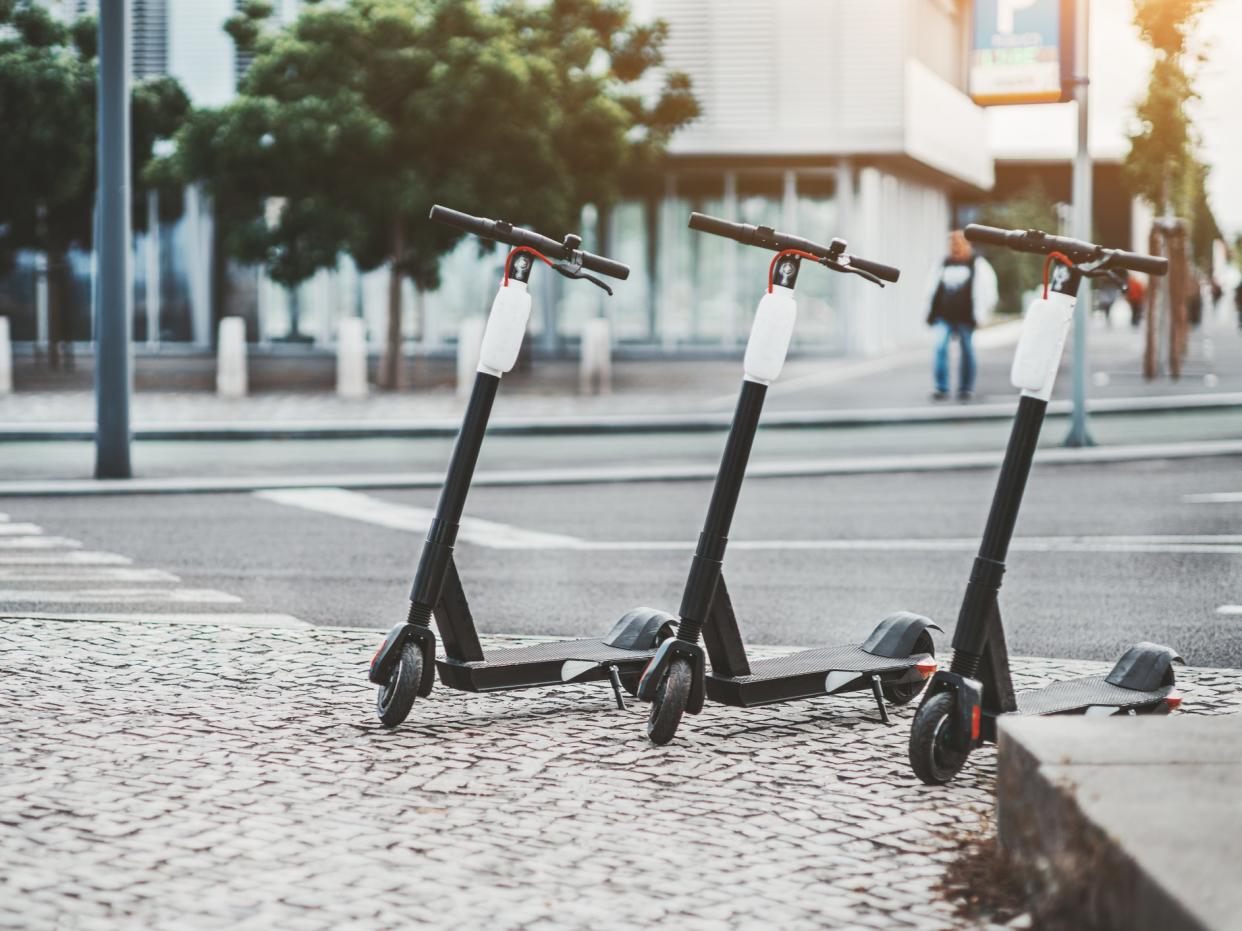How dangerous are electric scooters?

In the UK, e-scooters can only be legally used on private land, effectively making it illegal to operate one on public roads and pavements, but the law has not prevented deaths linked to e-scooters from occurring.
In 2019, 35-year-old YouTuber Emily Hartridge became the first person in the UK to die following a collision while using an e-scooter.
The number of dangerous collisions in London has risen sharply from four recorded in 2018, to 32 in 2019.
However, it is believed these numbers might not be a true reflection, as people could be wary of reporting collisions due to the scooters being technically illegal to ride in public.
More than four illegal e-scooters per day are being seized from the streets by Metropolitan Police, and with some motorised scooters clocking speeds of over 40mph, how safe are they?
Trials in the UK
From 7 June, a year-long trial began that will allow Londoners over 18 to hire e-scooters and travel around the city’s road and cycle lanes, at a top speed of 12.5mph.
The trial is part of Transport for London’s aim to make the city more sustainable in the future.
During the trial, the scooters will cost £1 to unlock and 16p per minute of use. 200 e-scooters have been made available and can be accessed by an app. Riders must have a driver’s licence.
The London e-scooter trial, which was delayed due to the complexity of the city’s streets, is taking place in Canary Wharf, the City of London, Kensington and Chelsea, Ealing, Richmond, and Hammersmith and Fulham.
Across the UK, 40 towns and cities, including Manchester, Middlesbrough and Birmingham, are taking part in the same trial.
Private-owned e-scooters are still prohibited and riders could receive a fine of £300 and three points on their driver’s license. Riding drunk could also see perpetrators facing drink-driving charges.
What are the laws in other countries?
Legislation around e-scooters varies widely around the world. The UK is the only European country that only allows them to be used on private land (unless part of the trial).
Some countries, such as Norway and Austria, class e-scooters as bicycles but they are restricted to 12.5mph and 15.5mph respectively.
In Ireland, e-scooters are considered mechanically propelled vehicles and, as per the Road Traffic Act 1961, must have road tax, insurance and a driver’s license. However, there is currently no possible way to tax and insure e-scooters.
What have officials said about them?
Electric scooters have a number of critics, including those in the police, but others believe they have the potential to solve issues linked with traffic and environmental pollution.
Simon Ovens, who works for the Metropolitan Police’s road and transport policing command, said the machines are “absolute death traps”. However, the Met Police are supporting the trial.
Many MPs are supportive of the legalisation of e-scooters. Conservative MP Huw Merriman, who chairs the Transport Select Committee, has called for people to be able to ride them as a means of reducing congestion.
Merriman said: “E-scooters have the potential to become an exciting and ingenious way to navigate our streets and get from place to place.
“If this gets people out of the car, reducing congestion and exercising in the open air, then even better.”
However, some have concerns, as Conservative peer Lord Blencathra has described the vehicles as “silent killing machines” and stressed the need for tougher restrictions and enforcement.
Read More
Skater's ollie over a flight of stairs ends in near-miss
Nasa says newly discovered ‘weird’ planet with ‘unknown’ atmosphere is remarkably similar to Earth
Salma Hayek on putting a menopausal woman in the centre of an action film

